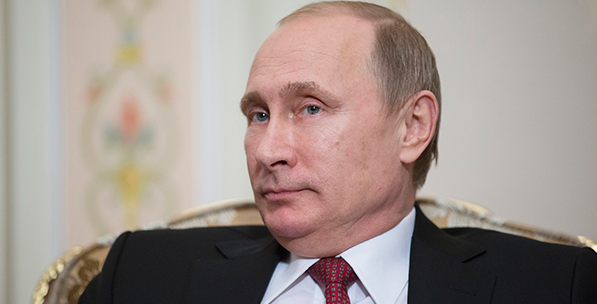Last week Russian President Vladimir Putin paid an official visit to Egypt. On this very well covered visit, Putin met with Egyptian President Abdel-Fattah el-Sissi and signed multiple agreements between Russia and Egypt. Among these an important one was the agreement to construct the first nuclear power plant in Egypt. Sissi and Putin signed a memorandum of understanding regarding the construction of these reactors along the coast of the Mediterranean Sea. During this visit there were some other agreements as well including an agreement to increase the volume of trade between the countries and the establishment of a Russian industrial zone in the Suez Canal region of Egypt.
In their endeavor to resist international pressure the two countries tried to find different common goals and objectives and discover different areas where they could cooperate. Their common position against the Muslim Brotherhood has become one of the most significant instruments for strengthening security ties between the two countries. As both countries recognize the Muslim Brotherhood as a terrorist organization, during their meetings they tried to bring together a common security identity of fighting against terrorism, which will most probably include cooperation against this organization.
Furthermore, in recent days the position of both of these countries regarding the conflict in Syria started to converge. On the one hand, both of the countries are trying to organize meetings for some Syrian opposition members and trying to present themselves as honest brokers and, on the other hand, they are trying to present a solution that will include Syrian President Bashar Assad. In an interview with Al-Ahram before his trip to Cairo, Putin presented this issue as a possible area of cooperation between the two states. He said: “The approaches of Russia and Egypt to the situation in Syria are similar. … We have a similar vision of the initial measures to be taken to settle the Syrian crisis. … Cairo is hosting meetings of the Syrian opposition aimed at creating a common platform that could be used at the negotiations with the Syrian government. A consultative meeting of the representatives of various Syrian opposition groups, civil society and the delegation of officials from Damascus recently took place in Moscow. Evidently, Russian efforts and the activities of the Egyptian partners complement each other.”
In fact, the relations between the two countries for the last two years started to increasingly resemble the Cold War years. Egyptian policy makers are nowadays trying to take advantage of the rift between the U.S. and Russia and consider it as a possible way to receive loans and weapons from one of these two countries. Because of that Putin’s visit turned out to be an opportunity for Sissi to be utilized domestically in order to gain more legitimacy and present himself as a legitimate and well-respected leader. The pompous welcoming ceremony and the headline in Al-Ahram newspaper, “Putin: Hero of our Time” presents the significance of this trip to Sissi and his regime. And of course Putin’s gift to Sissi, an AK-47 rifle, was definitely something that can be consumed domestically.
Through this visit, the two countries also tried to demonstrate that they have different options for strategic partnerships outside of the Western world. In fact, it was not surprising to see some of the articles on the official Chinese news service, Xinhua, calling the meeting an attempt to end U.S. hegemony in the world. The increasing isolation of Russia as a result of its policies in Ukraine and pressure on the Egyptian regime in regard to its human rights record brought these two countries closer to each other. However, in the long run, what kind of benefit the two countries will receive from such a partnership is still unknown. Such messages of partnerships has been a rising thread of international relations in recent years for countries with autocratic characteristics or those that breach serious international norms. These states, i
In this article
- Foreign Policy
- Opinion
- Abdel Fattah el-Sisi
- Bashar Al Assad
- Cairo
- Cold War
- Egypt
- Hegemony
- Human Rights
- International Relations
- Mediterranean
- Middle East
- Muslim
- Opposition
- Russia
- Strategic Partnership
- Syria
- Syrian Civil War
- Syrian Conflict
- Syrian Crisis
- Syrian Opposition
- Terrorism
- Ukraine
- United States (US)
- Vladimir Putin
- Western World

